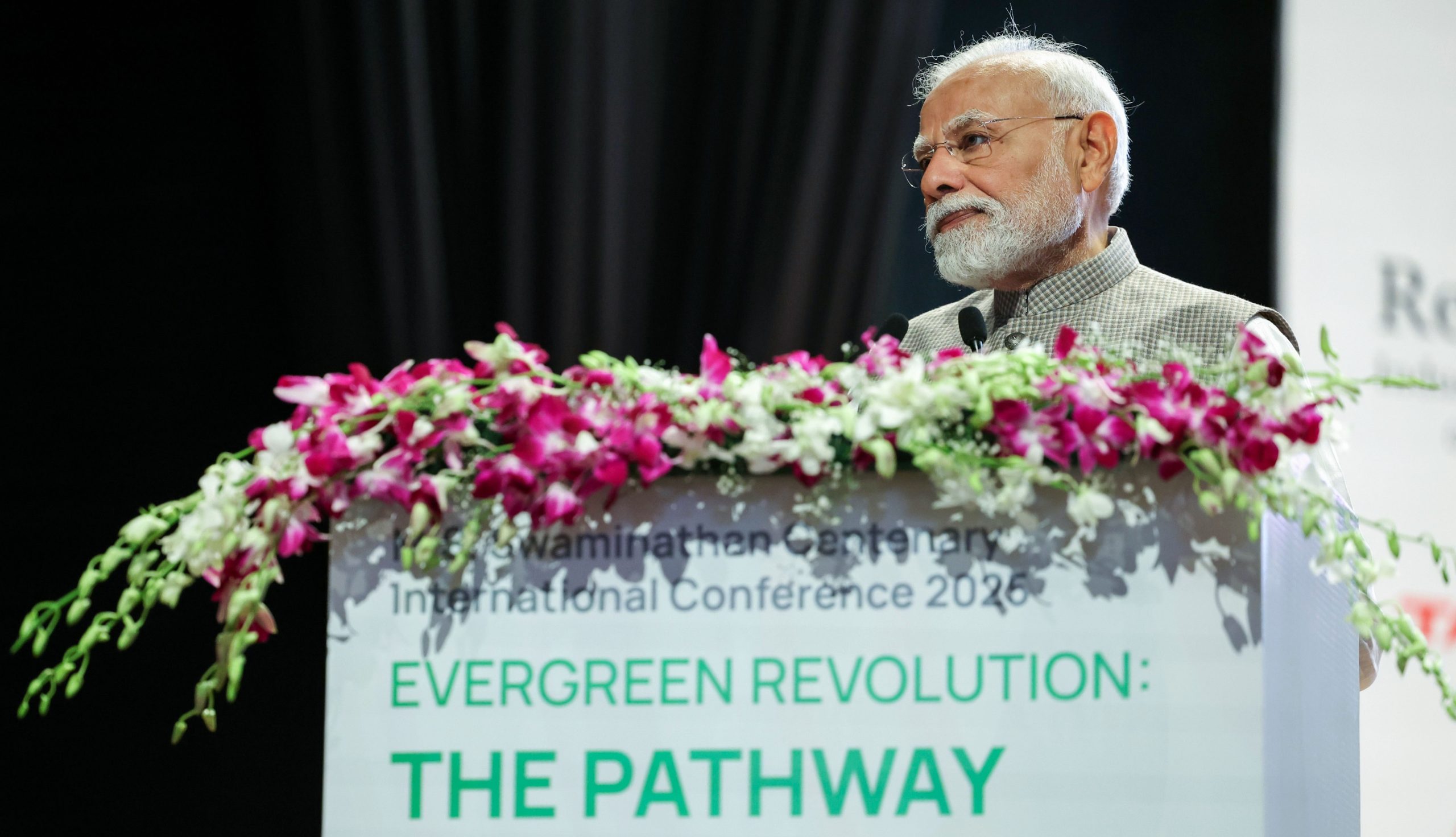Prime Minister Narendra Modi on Thursday said that Indian scientists must now move beyond food security and focus on achieving nutritional security.
Prime Minister Modi underlined the sanctity of food, saying that “food is life itself and must never be disrespected or neglected.” Warning that food crises often lead to humanitarian and geopolitical unrest, Modi said the M.S. Swaminathan Award for Food and Peace will now honour individuals from developing nations who have contributed meaningfully to food security.
Speaking at the MS Swaminathan Centenary International Conference at ICAR PUSA, the Prime Minister said the country’s agricultural progress must now be steered by innovations that address the nutritional needs of the population.
“Building on the legacy of food security, the next frontier for our agricultural scientists is ensuring nutritional security for all,” PM Modi said, while addressing the gathering held in memory of Dr. M.S. Swaminathan, the architect of India’s Green Revolution.
He added that while earlier generations of scientists addressed the challenge of food sufficiency, the present generation must work towards improving the overall nutritional well-being of the populaton.
The Prime Minister called for large-scale promotion of bio-fortified and nutrition-rich crops and emphasised the need to reduce chemical usage in farming. “There is a need for urgency and more proactive efforts in promoting natural farming,” the PM said.
Highlighting India’s development aspirations, PM Modi said: “21st-century India is fully committed to becoming a developed nation, and this goal will be achieved through the contribution of every section of society and every profession.”
Reflecting on the legacy of Dr. Swaminathan, PM Modi said the scientist’s work on millets — long before they gained global attention — was visionary. “He believed the solutions to climate change and nutritional challenges lie in the very crops that have been forgotten,” the PM said.
The Prime Minister also recalled Swaminathan’s suggestion to incorporate the genetic resilience of mangroves into rice, making crops more resistant to climate stress. “Today, as climate adaptation becomes a global priority, it is evident how far-sighted Professor Swaminathan’s thinking truly was,” he said.










